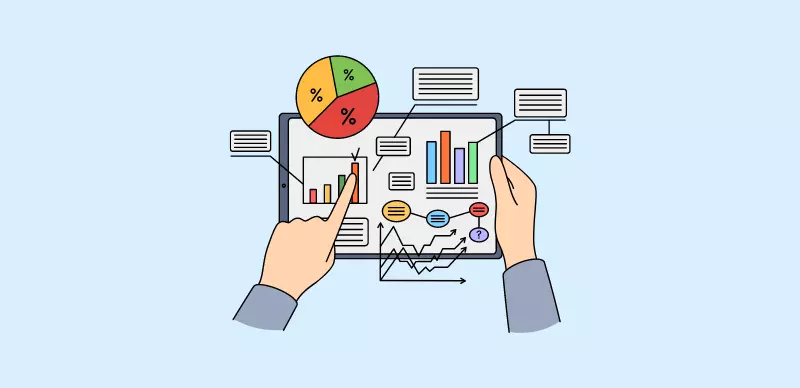The word Statistics is usually derived from the Latin word Status. The subject of statistics dates back to ancient times. In ancient times, political speech was considered mathematics or the science of kings. But in 1749, God Fried Achel first used the term Statistics to name it. As the core of statistical content is very old, it has improved the evolution process, and various thinkers have described it from different angles.
Definition of Statistics
The definition of statistics is usually divided into two categories. For example a word and a plural. In a word, statistics are called numerical methods. In this sense, the definition of Croxton and Cowden is important. That is, statistics is a science that collects, presents, analyzes, and reviews comprehensive data.
In the plural, statistics mean quantitative concepts or facts. This is called chained data. In this regard, the views expressed by Professor Horace Secrist are always welcome. In his view, the aggregate of information affected by a number of legal reasons, expressed by numbers, presented up to the calculated or reasonable values, is used in order to fulfill a predetermined purpose.
Importance of Statistics
Statistics help to dispel ignorance and misconceptions among people. It also helps to formulate and plan the right plans in the best interests of the country. The main tasks of statistical science are discussed below.
(1) The statistics represent the data in a logical way. In India, for example, most people live below the poverty line. Such statements are not as important and are not particularly helpful in poverty alleviation programs. But if we say that 40 percent of people in India live below the poverty line, that would be more acceptable.
(2) Complex data is simple and easy to understand through statistical methods. The human brain is unable to remember a variety of facts, events, and numbers. So statistical methods such as a medium, graph, and table make it concise and easy to understand.
(3) The relationship between population growth and unemployment, the relationship between rainfall and agricultural production, and the relationship between food demand and supply in the country can be well measured through statistical methods.
(4) Statistics help to formulate plans for the country’s social and economic business. There are a number of different rules that apply to statistics. For example, the Malthus Population Act and the England Family Expenditure Act have also been made possible by statistical data.
Limitations of Statistics
Although the use of statistics is essential in the modern age, there are some exceptions. They are described below.
- Individual data does not fall within the scope of statistics but rather belongs to the statistics of individuals.
- Statistics do not discuss qualitative data such as good and bad, beauty, poverty, truth, honesty, and so on.
- The statistics show an average calculation.
- It has the potential to be abused by statisticians. So there is a sense of superstition about the theory.



